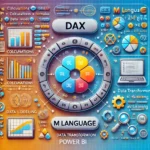Appium vs. XCUITest: A Comprehensive Comparison of Mobile Automation Testing Frameworks
Mobile app testing plays a pivotal role in ensuring the quality and reliability of applications. To achieve this, developers rely on powerful automation testing frameworks. Appium and XCUITest are two prominent players in this domain, each catering to specific platforms – Android and iOS, respectively. In this blog post, we’ll embark on an in-depth journey to compare and contrast Appium and XCUITest, aiding you in selecting the ideal framework for your mobile automation testing needs.
Appium: Appium stands as a versatile, open-source mobile automation testing framework designed for native, hybrid, and mobile web applications on iOS, Android, and Windows platforms. Notably, Appium is cross-platform, allowing test scripts to be written in various programming languages such as Java, Python, Ruby, and more. It interacts with mobile devices, emulators, and simulators, offering flexibility and a wide scope of compatibility.
Key Features of Appium:
- Cross-Platform Capability: Appium supports multiple platforms, making it suitable for cross-platform app testing.
- Native and Hybrid App Support: It caters to both native and hybrid mobile applications, enhancing its versatility.
- Multiple Language Support: Test scripts can be authored in a range of programming languages, accommodating the tester’s expertise.
- Real Devices and Emulators/Simulators: Appium allows testing on both real devices and emulators/simulators, mirroring real-world scenarios.
- Active Community and Integrations: The active Appium community ensures continuous support and compatibility with various testing frameworks.
XCUITest: XCUITest is Apple’s native UI testing framework designed for iOS app testing. It allows developers to write UI tests using Swift or Objective-C and operates directly on iOS devices and simulators. XCUITest offers a comprehensive set of features, including app launch, gestures like tap, scroll, and swipe, and supports XCTest, Apple’s testing framework for macOS, tvOS, and watchOS.
Key Features of XCUITest:
- iOS-Centric Testing: XCUITest is purpose-built for iOS app testing, providing seamless integration with the iOS ecosystem.
- Swift/Objective-C Compatibility: Developers can write tests using Swift or Objective-C, capitalizing on their iOS development skills.
- Accurate Simulator Testing: XCUITest ensures precise testing on iOS simulators and real devices, yielding reliable results.
- Integration with Xcode: XCUITest seamlessly integrates with Xcode, streamlining iOS app development and testing.
https://synapsefabric.com/2023/08/04/a-deep-dive-into-mobile-automation-testing-appium-vs-espresso-vs-xcuitest/
Comparison: Appium vs. XCUITest
| Feature | Appium | XCUITest |
|---|---|---|
| Platform Support | iOS, Android, Windows | iOS |
| Native App Testing | Yes | Yes |
| Hybrid App Testing | Yes | No |
| Cross-Platform Support | Yes | No |
| Programming Language | Multiple Languages | Swift, Objective-C |
| Test Execution Speed | Moderate | Moderate to Fast |
| Integration | Multiple Testing Frameworks | Xcode |
Appium and XCUITest serve as robust mobile automation testing frameworks, catering to distinct platforms. Appium excels in cross-platform capability, supporting native and hybrid apps, and offers diverse language support. XCUITest, on the other hand, targets iOS apps exclusively, providing seamless integration with the iOS ecosystem and supporting both Swift and Objective-C. Your choice between the two hinges on your platform, project requirements, and expertise. By evaluating their features and aligning them with your mobile app testing needs, you can confidently select the framework that elevates your app’s quality and user experience.







